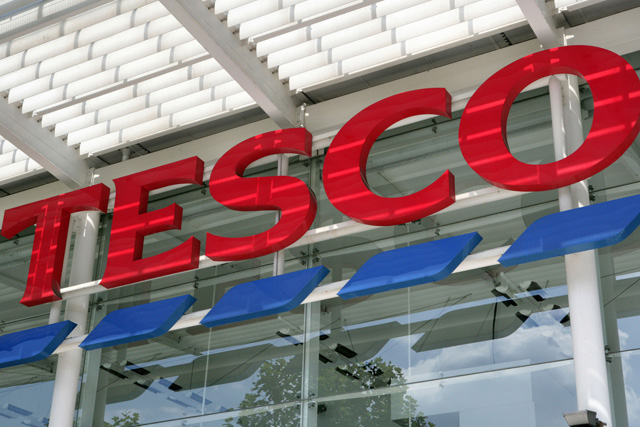We know that what goes up must come down. But for Tesco, this phrase seems particularly apt, with the shock news last week that UK boss Richard Brasher is to leave this summer. His decision appears to be a direct result of group chief executive Philip Clarke taking back responsibility for the UK business following a year of poor trading.
Over the past decade, sales, profits and market share figures for Tesco - Britain's biggest retailer and the third-biggest in the world - have consistently been in the ascendancy.
Then came last Christmas, and with it Tesco's worst sales performance in decades. Despite a £500m 'Big price drop' price-cut campaign, like-for-like sales in the six weeks to 7 January slipped 2.3%. The subsequent profit warning wiped £4.3bn off Tesco's share price on the day.
The strategy behind the campaign was to entice shoppers back following a dip in market share. Instead it was dubbed the 'Big price flop' by some, as analysts noted it had failed to capture the consumer mood.
In the latest market-share figures from Kantar, published last month, Tesco fell beneath 30% to 29.7%, its lowest level since 2005. While Tesco says that these numbers do not reflect a step-up in sales performance during the past month - as it introduced coupon deals to compete with rivals' offers - they provide yet another negative headline.
The £68bn-turnover retailer continues to rapidly expand overseas, but what should it do to get the UK back on track?
We asked Laura Gray, former director of category and shopper marketing at GlaxoSmithKline Consumer Healthcare and founder of Spring Retail Marketing; and Darren Keen, managing director of shopper marketing agency MARS\Y&R, whose clients include The Co-operative.
 LAURA GRAY - Owner, Spring Retail Marketing (formerly of GSK Consumer Healthcare and Safeway)
LAURA GRAY - Owner, Spring Retail Marketing (formerly of GSK Consumer Healthcare and Safeway)
The failure of the Tesco 'Big price drop' campaign comes as no surprise. Shoppers are becoming increasingly fatigued by the supermarket's relentless price promotions, which have now become expected, and do not drive loyalty to a specific retailer over time.
I fear the weakening Tesco brand - especially due to poor clarity about what it stands for - could be the bigger issue to address here.
In its dogged pursuit of size, market penetration and profit, Tesco has lost track and is not getting the basics right for the shopper.
'Big and cheap' does not equate to value. True value is the right balance of price, quality and service.
Too often in Tesco there is poor merchandising, excessive cluttered promotional cardboard that negatively disrupts the shopper, and limited customer service.
It is interesting to compare Tesco's performance with that of Morrisons, which is doing it so well with implicit value, great quality and a positive shopping experience.
REMEDY
- Go back to basics - focus on range, effective merchandising and store experience.
- Promotionally, less can be more - improve promotional phasing and mechanics for each category to drive efficacy (putting the shopper first, rather than the supplier funding for Tesco).
- Re-establish Tesco's brand values to communicate the proposition/USP - these are currently lost among the price-promotion campaigns.
 DARREN KEEN - Managing director, MARS\Y&R, (which works with The Co-operative)
DARREN KEEN - Managing director, MARS\Y&R, (which works with The Co-operative)
Tesco's troubles have been quietly building up for years. Pre-austerity, while each of the multiples played in a narrow-ish proposition field, each had its place. Arguably Tesco was too much 'all things to all men' and the easy doorstep choice for most shoppers.
The recession changed everything as people started to manage their spending differently. Tesco, less used to playing in a niche, was at a disadvantage. Its competitors were able to overlay their more-specific propositions with price/value messaging. Doing the same, left Tesco wide open to accusations of copycat activity.
Its 2011 'Big price drop', and this year's version, have not only remained awkwardly ubiquitous, but reflect on the departure of Richard Brasher and the need for a more exclusive focus. Shoppers will expect Tesco to have the UK's lowest prices because it is the biggest retailer. Brasher's successor needs to find an energised way to lead the pack, not simply fit in amongst it.
REMEDY
- Tesco should quickly leverage its massive but currently under-exploited assets, including Clubcard and its geographic scale.
- It needs to define and create a 'big bang' launch for a new, super-simple value-reward programme, delivered personally (particularly via mobile), to (re)acquire and retain shoppers.
- Tesco will have cracked it when a Morrisons shopper will 'Facebook' a friend who shops at Sainsbury's to say 'OMG, have you heard about the new Tesco deal?' Its next marketing planning meeting should probably start with this.



